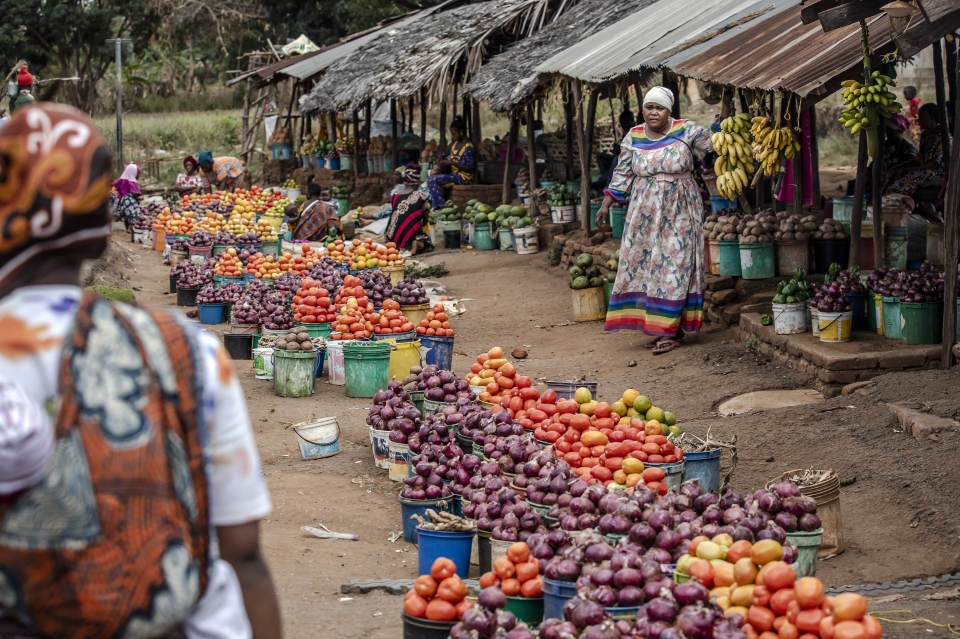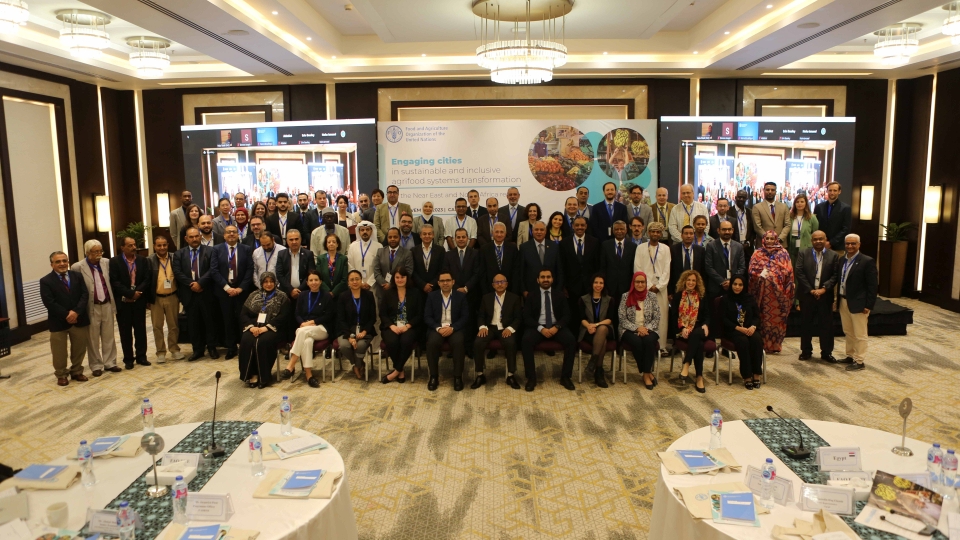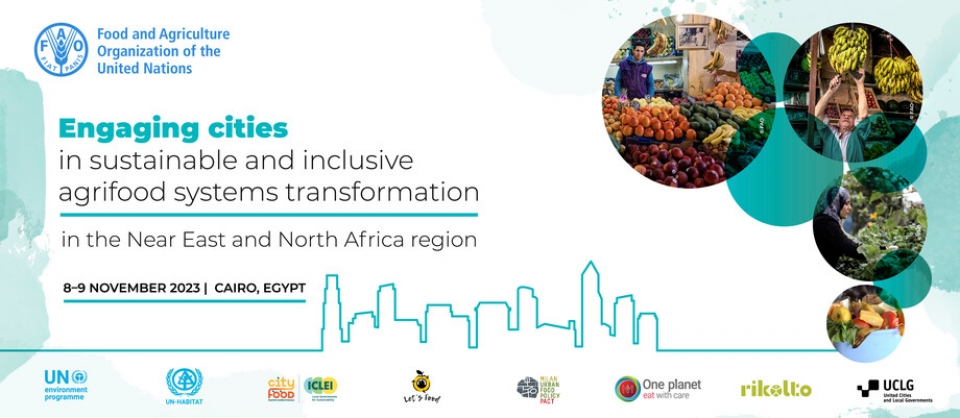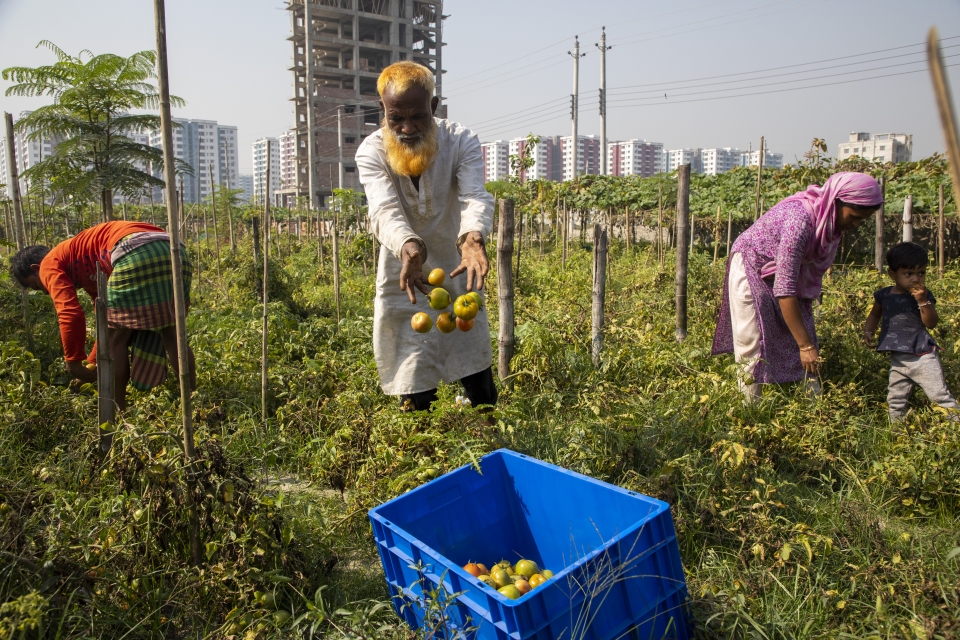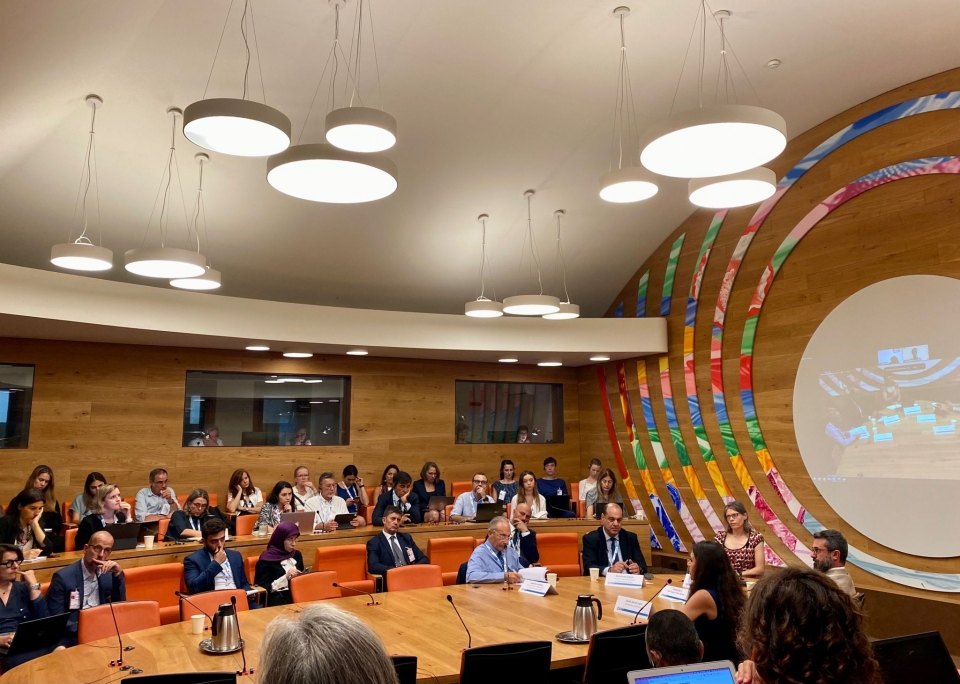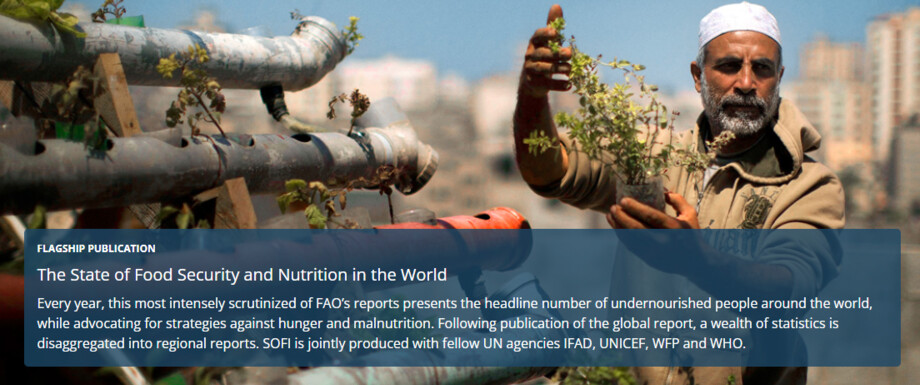The Urban Food Agenda is an FAO flagship initiative to enhance sustainable development, food security and nutrition in urban and peri-urban areas, and nearby rural spaces. It consists of a vast range of policies, programmes and initiatives developed and implemented in partnership with different stakeholders: civil society, academia, UN & International agencies, City Networks and relevant public and private bodies and entities.
At least 55% of the world’s population already lives in urban areas and up to 70% of all food produced globally is destined for consumption in urban spaces. Social, economic and environmental sustainability of food systems and the evolution of urban diets will be largely dependent on the management of food systems in urban and peri-urban areas. Therefore, a greater focus on the Urban Food Agenda is long overdue.
FAO 2030 Vision for the Urban Food Agenda is an integral part of the Organization’s vision of resilient, integrated, sustainable and inclusive food systems, which ensure that all people in all places are free from hunger and all forms of malnutrition.
Events
04/11/2024

Leveraging sub-national and local government action to ensure sustainable food systems and improved nutrition.
The FAO corporate strategy behind the Agenda.
It addresses emerging calls from countries across the rural-urban continuum.
READ THE STORY
Five ways to make cities healthier and more sustainable

